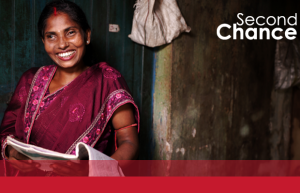You are here
- Home
- New courses will empower the world’s most disadvantaged women
New courses will empower the world’s most disadvantaged women
6 March 2022

The Open University (OU) is working with UN Women’s Second Chance Education (SCE) and Vocational Training Programme to empower disadvantaged women and young women in six pilot countries.
The university is applying a participatory approach to course development by producing, and supporting the production of, high-quality courses adapted to women from beneficiary communities.
Owing to Covid-19 travel restrictions the entire project has been led by the OU remotely between September 2020 and December 2021.
The SCE programme is housed on OpenLearn Create, the OU’s open educational platform where individuals and organisations can publish their open content, open courses and resources, under Life and career planning. There are adapted versions for six countries: Australia, Cameroon, Chile, Mexico, India and Jordan, plus a global version.
Open University Business School academics co-designed the course outlines and scripts, and worked alongside implementing partners, and women in the beneficiary communities, to incorporate local content and address high priority gaps.
The adapted content and scripts were then used by the local partners to co-produce the audio-visual content, with training and 1-2-1 support provided by participatory video production experts from the Cobra Collective.
The videos were filmed by implementing partner staff, who had never done anything like this before, through a long and taxing process in difficult, Covid-restricted circumstances. Some of those involved share what they thought of the experience in a 35-minute documentary.
To support content development by SCE partners in the future, the OU and Cobra Collective developed two online courses, Designing an online course for women learners and Participatory video for facilitators, which are available in five languages.
The courses are also available to Second Chance participants through Kolibri, the learning management system used in the SCE programme.
The OU’s project team, featuring Academic Lead Dr Michael Ngoasong and OU Business School colleagues Professor Liz Daniel and Professor Jo Brewis, the International Development Office and Learner and Discovery Services, collaborated with the Cobra Collective and implementing partners from the six countries, with coordination from UN Women country offices.
OU colleagues also supported academic adaptation of the courses to local languages, namely Aqueel Wahga (Hindi), and four Associate Lecturers: Julie Davies (Arabic and Spanish); Sophie Peiffer (French and Spanish); Carmel McMahon (Quality Assurance); and Rachel Wrangham (Monitoring and Evaluation).
About the UN Women SCE programme
UN Women is the United Nations entity for gender equality and the empowerment of women. The Second Chance Education and Vocational Learning (SCE) programme aims to develop context-specific, affordable and scalable learning and employment pathways for empowering the world’s most disadvantaged women and young women.
The SCE programme is being piloted in these six countries and aims to directly benefit 67,000 women and young women from indigenous, refugee, displaced and low-income groups.
These marginalised women and young women face a combination of key barriers and vulnerabilities that prevent access to relevant educational programmes. These include geographic and cultural barriers such as gender-based violence, low income, early marriage and childhood pregnancy, conflict and displacement, and poverty and migration.
Photo: UN Women/Priya Naresh and Aniket Kolarkar
Share this page:
Monthly Archive
- March 2024 (1)
- November 2023 (1)
- February 2023 (1)
- January 2023 (1)
- November 2022 (1)
- October 2022 (1)
Contact us
To find out more about our work, or to discuss a potential project, please contact:
International Development Research Office
Faculty of Arts and Social Sciences
The Open University
Walton Hall
Milton Keynes
MK7 6AA
United Kingdom
T: +44 (0)1908 858502
E: international-development-research@open.ac.uk
.jpg)